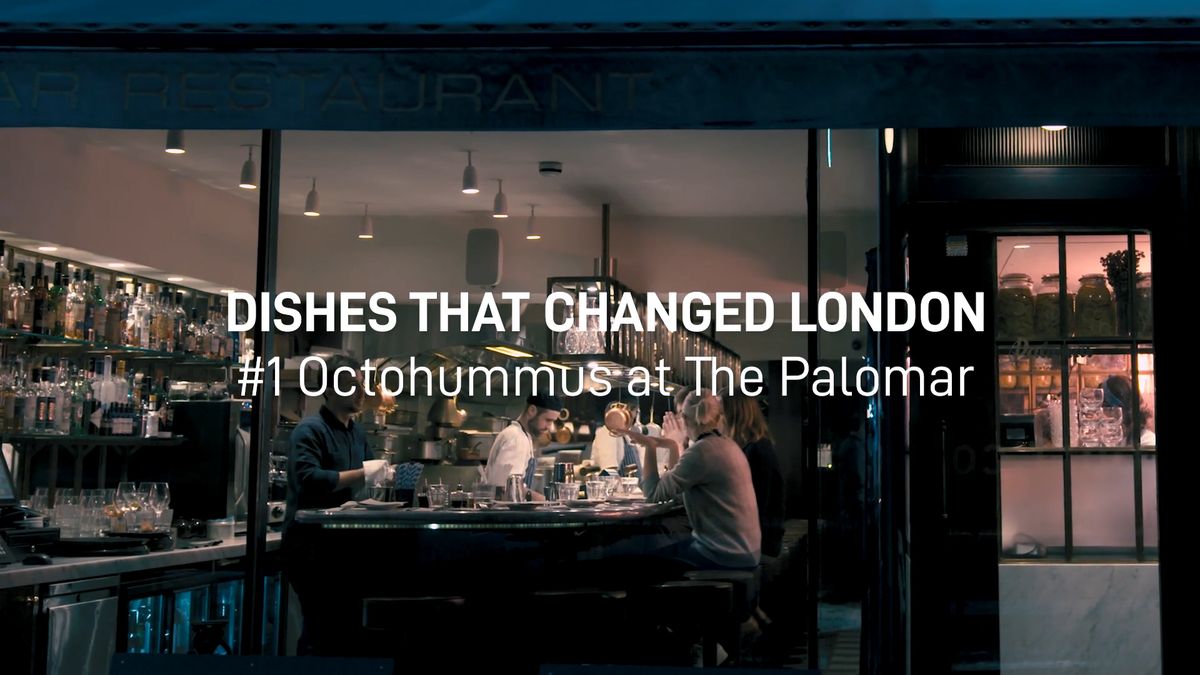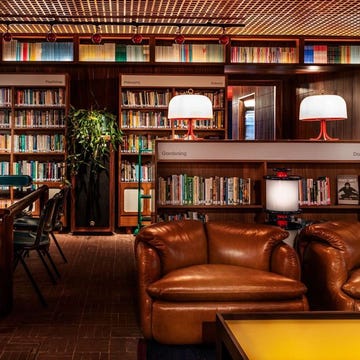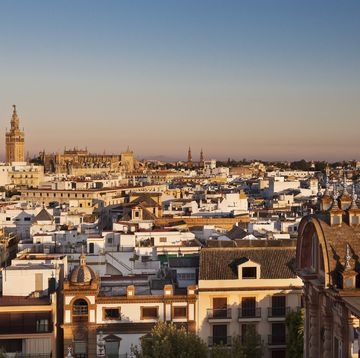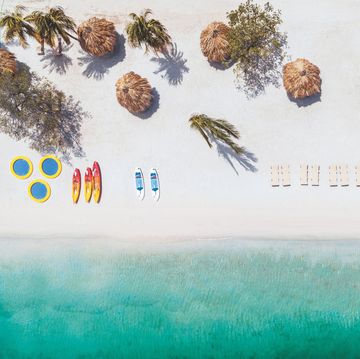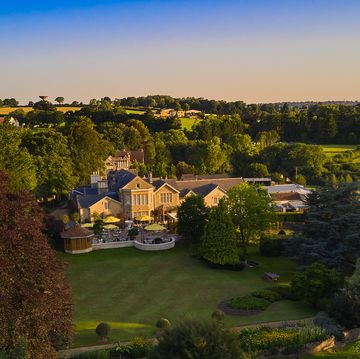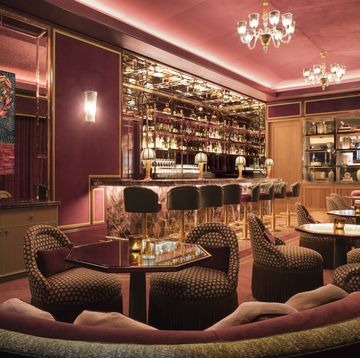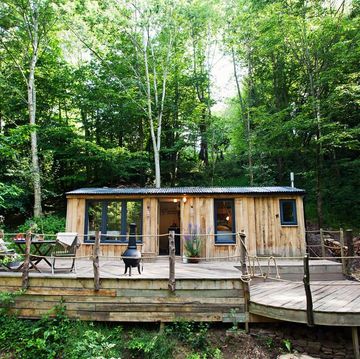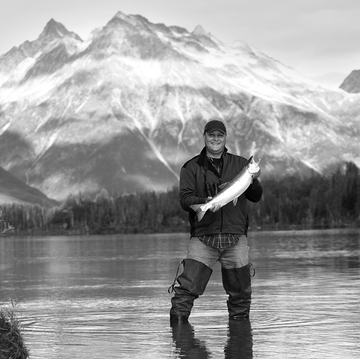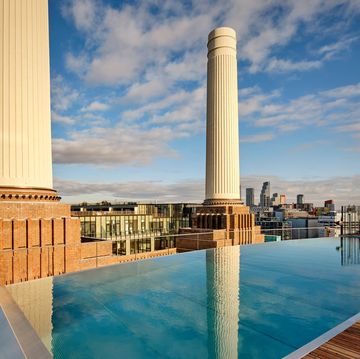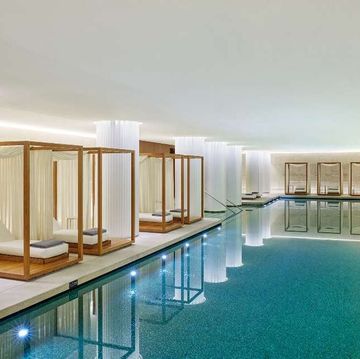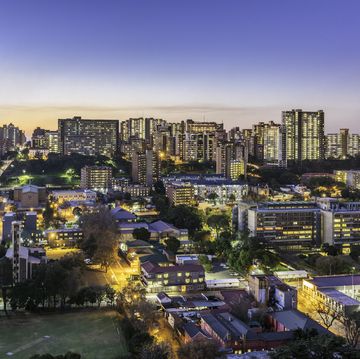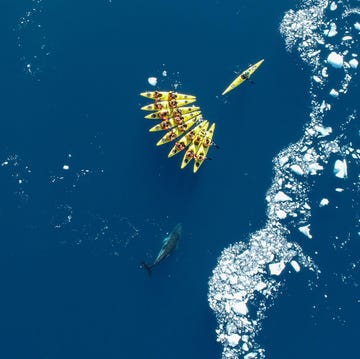My dad was driving me to Atlantic City to catch the casino bus back to New York, and another miserable work week, when he interrupted my complaining to ask what I would want to do if I didn't have to go back to work. My answer was instantaneous: I wanted to see the world. I didn't have any particular plan or ulterior motive; I didn't want to build schools in foreign countries or tutor kids in English. I just wanted to bear witness to the beautiful places we're constantly bombarded with on Instagram.
"So quit," he said.
I assumed he was joking—what kind of parent encourages his adult child to give up a steady paycheck from a company that matches their 401K contributions? So I brushed him off and proceeded to list out all the reasons I believed I couldn't leave my current situation in New York.
He listened politely, just like a good dad should, then shot each idea down one by one.
You have money saved, he said.
You'll get another apartment.
You're far enough into your career that you can freelance until you get a full-time job.
You're not meeting anyone on all those dating apps in New York now, so who's to say you will if you stay?
Dads are so wise.
And then he said, "I think it's time you read my journal from my bike trip."
I knew about this trip—in 1977, when my dad was 25, he and two of his college friends loaded up their bikes and spent a summer pedaling across America. I'd seen the old photos from his adventure, and one of his biking buddies is my godfather. But I didn't know until that car ride that he had quit his job to take the trip.
Quitting, to me, has always been synonymous with failure. My parents taught me that if you work hard and stick it out, you'll eventually get what you want. And for most of my life, that rule held true. By 26, I had everything I thought I was supposed to want: a great job in publishing, an apartment in New York, enough money to get drinks and dinner when going out with friends after work. But I felt unfulfilled and unhappy, always wondering what came next with no idea—and no guts—how to make something happen myself. Still, voluntarily leaving the security of the 9-5 world for an uncertain future felt aimless and indulgent.
Knowing my dad had quit something rocked my perspective. I started reading his journal and, very quickly, realized this wasn't some joy ride for a bunch of hippies. Fed up with a sense of stagnation at his job, hoping to escape family drama, and looking for clarity in his relationship, my dad had set out to find answers to questions about his own future. He wasn't running away, he was just hoping to experience life a little differently.
And that's exactly what he did. He wrote about how a poorly timed flat tire near Booneville, Kentucky, landed his friends and him at a quarry, where a bunch of stoned guards decided to give them an impromptu shooting lesson. He recounted a chance meeting with a "babe in a foxy halter" in Columbia, Missouri, that led to free camping and a house party, with skinny dipping and Pink Floyd on the stereo. And he wrote about a weekend spent working as houseboys for $2.30 an hour at Inn at Otter Crest in Oregon. Throughout it all, he debated the decision he knew he'd have to make at the end: Would he stay west when he got there and start anew, or return to the life he knew back east?
Reading about my dad's experience—getting inside his 25-year-old head, which seemed to be in a very similar space to my 27-year-old brain, 40 years later—made me realise there's nothing aimless or indulgent about doing something you believe in for yourself.
It took reading through his journal twice for me to hand in my own resignation. The first time, I raced through the pages, desperate to know how it all ended. Then I read it more slowly, realising how relatable his feelings in the 1970s were to mine now—and if he could quit to follow a wild dream for a few months, why shouldn't I?
So I quit, then boarded a flight to Thailand with my best friend. After 10 days of Chang beers, $6 massages, and island hopping, I said goodbye to her at the Bangkok airport and left for another six weeks alone in Europe.
I had an arrival and departure date from France and a list of cities I wanted to visit, but that was it. Traveling without an itinerary was just as scary to me as traveling alone for the first time. Both of those things reminded me that this wasn't a vacation—I was in Europe to learn something about myself so I could figure out what I wanted to do with my life.
It was an adventure, though. I climbed the steps of the Sacre Coeur for a bird's eye view of Paris, and ventured below ground to taste the the port caves of Porto, Portugal. I survived on gelato and prosciutto in Barcelona while walking nearly 10 miles a day. I hiked Cinque Terre in a rainstorm, and drank too much of my favorite Italian wine in Venice.
But it was also work. I struggled to get used to eating meals all alone, and had to force myself to make small talk with strangers, something I admittedly suck at. I missed my friends, and worried that I was missing out on life back home. I didn't always feel like sightseeing 24/7, and I occasionally felt lost without the structure of a daily routine—and then I felt guilty for being bored during what was supposed to be a once-in-a-lifetime adventure.
On the good days and bad, though, I saw the world (a part of it at least), and in doing so, I realised that I wanted to go home.
Sometimes it takes distance—not just a day off here and there, but the kind of distance that comes with completely stepping away from everything you know—to gain that kind of perspective.
My dad ended up going back home, too, at the end of his trip. He still wasn't sure exactly what would come next, but over those 5,000 miles, he realised it was OK to feel that way, because uncertainty is what keeps us from ever truly settling into total stagnation.
Almost 40 years later, that epiphany held true for me, too. I came home to a job offer I couldn't refuse, but I didn't take it because I was scared of being unemployed or because I was looking for a way out of my previous situation. I took it because it made sense at the time, and I knew that if it stopped making sense, I had enough trust in myself enough to leave. Quitting no longer scared me, because I had learned that doing what's right for you—not your résumé, your bank account, or anyone else—is really the only way anyone can figure out what they're "supposed" to do.
Everyone wonders what comes next. My dad taught me that it's OK to be unsure of that—the search for an answer is what really matters.



